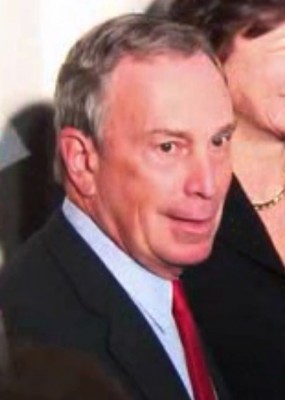The large amounts of outside money flowing into the Los Angeles Unified school board election represent a new front in the reform battles that have shaken up education politics over the last decade. Donations of $1 million by Mayor Michael Bloomberg of New York City and $250,000 by former District of Columbia Public Schools Chancellor Michelle Rhee, in particular, have sparked controversy.

Billionaire Michael Bloomberg, New York City’s mayor, gave $1 million to some school-board candidates in Los Angeles. (Photo courtesy of Amanda Cogdon)
But the involvement of national school reform players in local district politics is a trend likely to accelerate now that would-be reformers have won major policy victories at the state and federal levels, experts and advocates say. Upcoming races in Denver and Newark, N.J., may be the next target for national groups like Rhee’s advocacy organization, StudentsFirst, and major donors like Bloomberg and his former school chancellor, Joel Klein, who has also contributed money to the Los Angeles race.
“A lot of the reform success started at the federal level with Race to the Top, it moved to states and now it’s very much in the implementation phase at the district level,” said Joe Williams, director of Democrats for Education Reform (DFER), an advocacy group that supports charter schools and teacher accountability. “How implementation is handled is important to a lot of people.”
In the case of Los Angeles, donors like Bloomberg, Rhee, and local philanthropists such as Eli Broad (who has been among the many funders of The Hechinger Report), are giving to a slate of school-board candidates who support charter schools, new teacher evaluations based on student test scores, and overhauling teacher tenure. Although Los Angeles is already piloting new evaluations to be launched next year, the teachers union has resisted the inclusion of test scores as a major factor in the rating system. (Student achievement measures will make up 30 percent of a teacher’s rating under a system negotiated this year with the union.)
Reformers are also concerned that the city’s charter schools might be adversely affected if the make-up of the school board becomes more union-friendly.
Outside participation in local education politics is not entirely a new phenomenon. National groups were involved in state races in last November’s elections, and national donors gave generously to candidates in last year’s school-board race in New Orleans. “The extent that you have Bloomberg giving a million dollars, that’s new,” said Sarah Reckhow, a political scientist at Michigan State University and author of Follow the Money: How Foundation Dollars Change Public School Politics. “But the base and the networks and the foundation for getting to this point [have] built over a couple of election cycles.”
A decade ago, fights for mayoral control of school districts—which took power out of the hands of many local school boards—also occasionally attracted outside involvement from national foundations or other advocates. “It’s where you don’t have mayoral control where you see the outside money going into the local school boards,” said Jeffrey Henig, a political scientist at Teachers College, Columbia University, who is beginning research on the involvement of national groups in local education politics. “In places where you don’t have the friendly mayor as your ally, this becomes a backup strategy.”
The local teachers union, United Teachers Los Angeles, has been among the most vocal opponents of the participation of large national donors in the race. The union is supporting a separate slate of candidates, including incumbent Steve Zimmer, who helped push through the new teacher evaluation system and who last year proposed a two-month moratorium on the approval of new charter schools. The measure was defeated.
Voters “do not need outsiders deciding who is best to sit on the LAUSD Board of Education,” Warren Fletcher, president of United Teachers Los Angeles, said in a statement quoted by the Los Angeles Times.
Henig says the increased outside involvement in local education politics could become a concern. “There are some legitimate questions about democracy and local community values,” he said. “In a lot of instances, the incumbents are not entrenched interests, they are responding to a constituency that elected them.”
Yet despite the attention the Los Angeles election is receiving, it’s unclear whether the outside cash will make much difference in the outcome of the races. The money from Bloomberg, Rhee and other donors is mostly going toward television commercials. In an off-year school board election that will likely turn out few voters, Reckhow said knocking on doors is usually a better strategy.
And the involvement of wealthy outsiders could create a backlash, Williams of DFER said: “The money could also be what tanks a candidate, if that’s what the storyline is with voters.”



